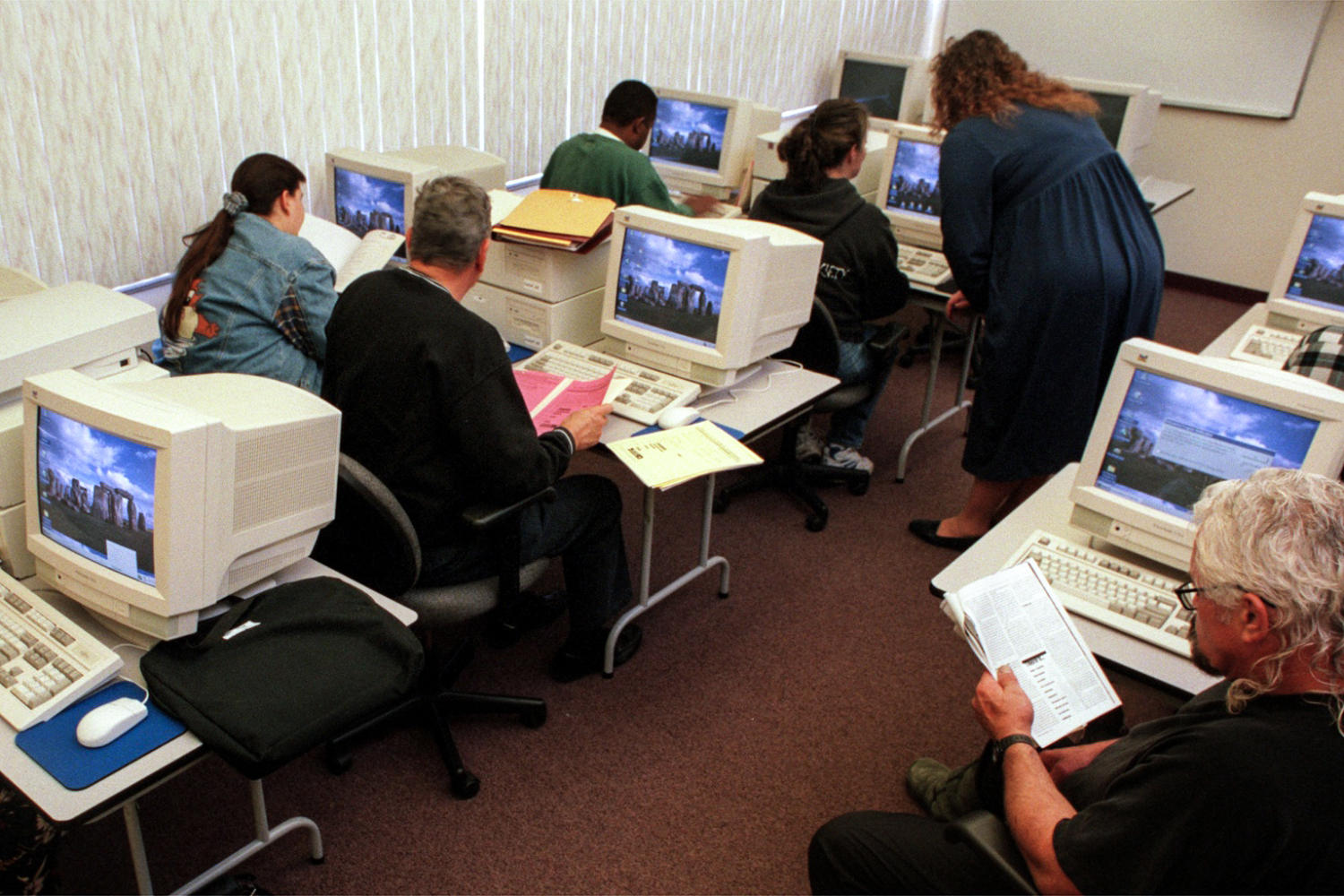
Artificial intelligence chat tools like OpenAI’s ChatGPT, Google’s Gemini and Microsoft’s Copilot have achieved significant public adoption, according to the latest NBC News Decision Desk Poll powered by SurveyMonkey. Nearly three-quarters of adults — 74% — say they’ve used one of the tools at some point. And 44% say they use them “sometimes” or “often.”
Despite rising acceptance, the future ubiquity of artificial intelligence tools like those put out by OpenAI and Google remains an open question. Polling data suggests that current adoption rates of AI chat tools look similar to internet adoption rates at the turn of the century. But the trajectory of AI’s growth and the challenges it faces are unique.
When an October 1998 Newsweek poll asked respondents how often they were using the internet, 38% said once a week or more.
By June 2000, an NBC News/Wall Street Journal Poll found that 71% adults had internet access and that among that group, three-quarters were using it for at least an hour a week.
Internet use has, of course, only continued to rise since 2000. Daily internet use is now a more relevant metric than weekly use, and much of the public debate centers on what limits to internet access are necessary.
The NBC News Decision Desk Poll identifies how public reservations shape opinions about AI adoption.
In the recent survey, 47% said they believe a school that prohibits using AI would better prepare students for the future. That sentiment extends even to the most frequent AI chat tool users — one-fifth of those who say they use AI tools “often” say prohibiting them in the classroom would better prepare students.
Society’s concerns about internet ubiquity may mean we’re in new territory regarding technological caution. Yet, it’s important to remember that public sentiment toward new technologies doesn’t always prioritize adoption.
When CBS News asked in 1999 whether the ability to use the internet was important for school-age children, 48% said it wasn’t all that important.
